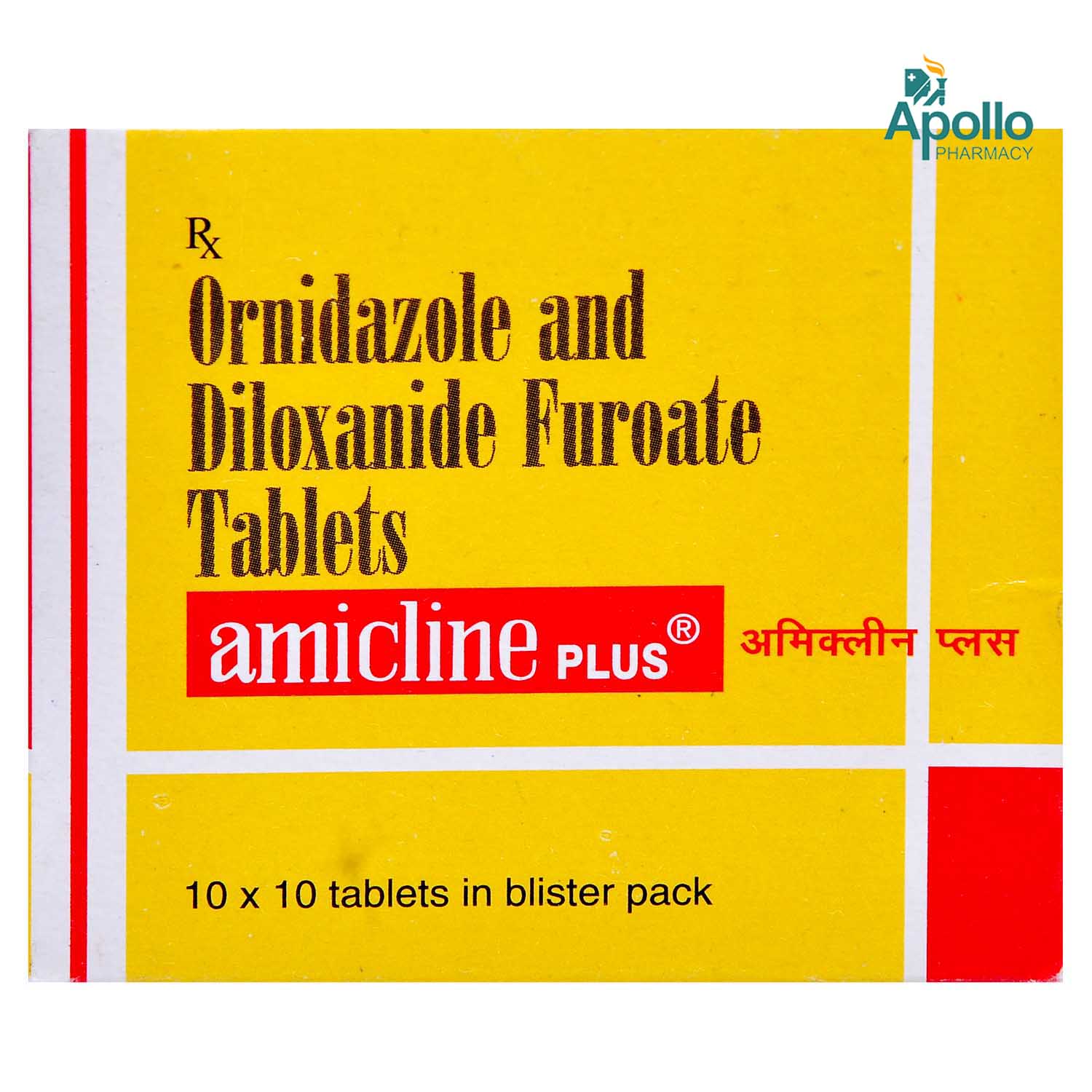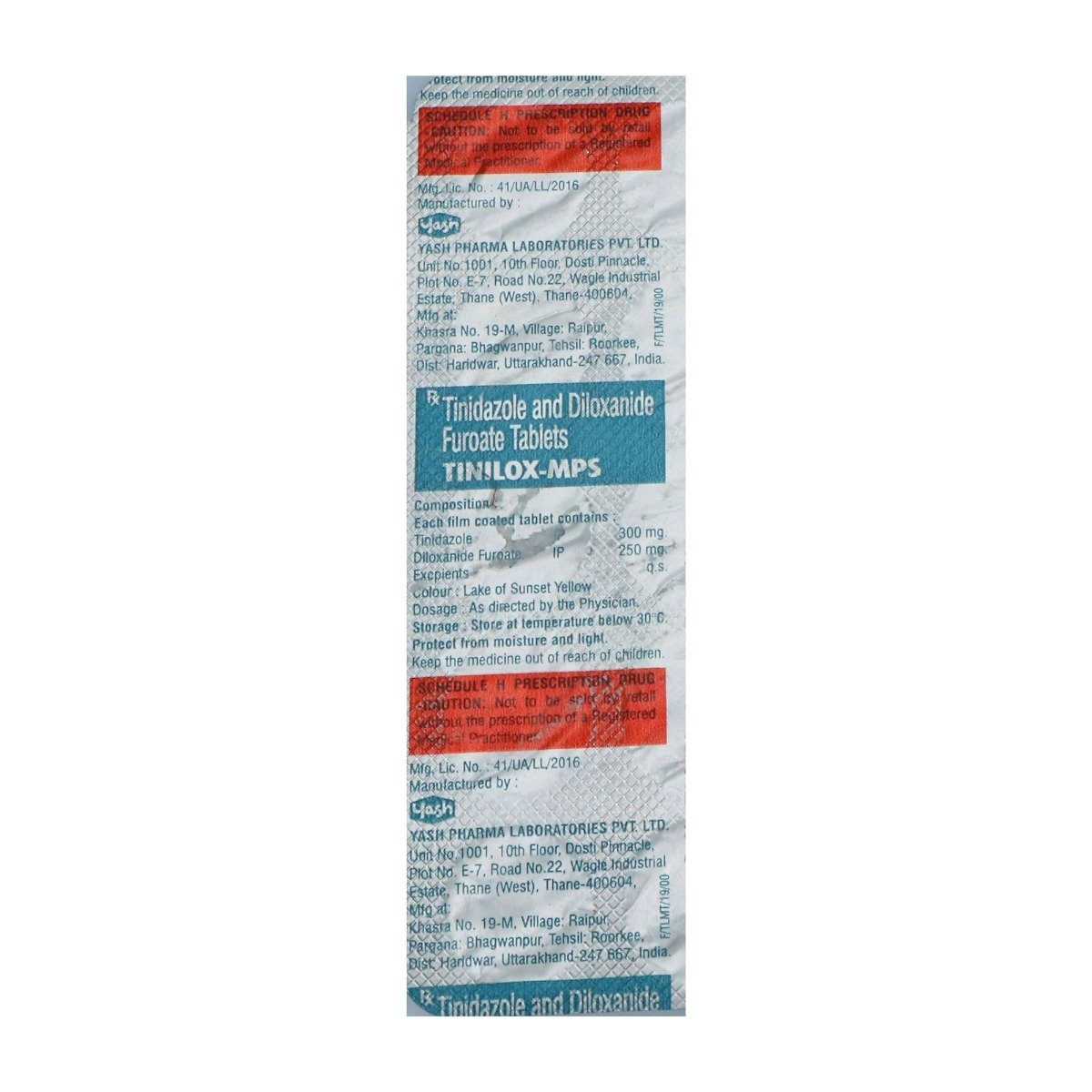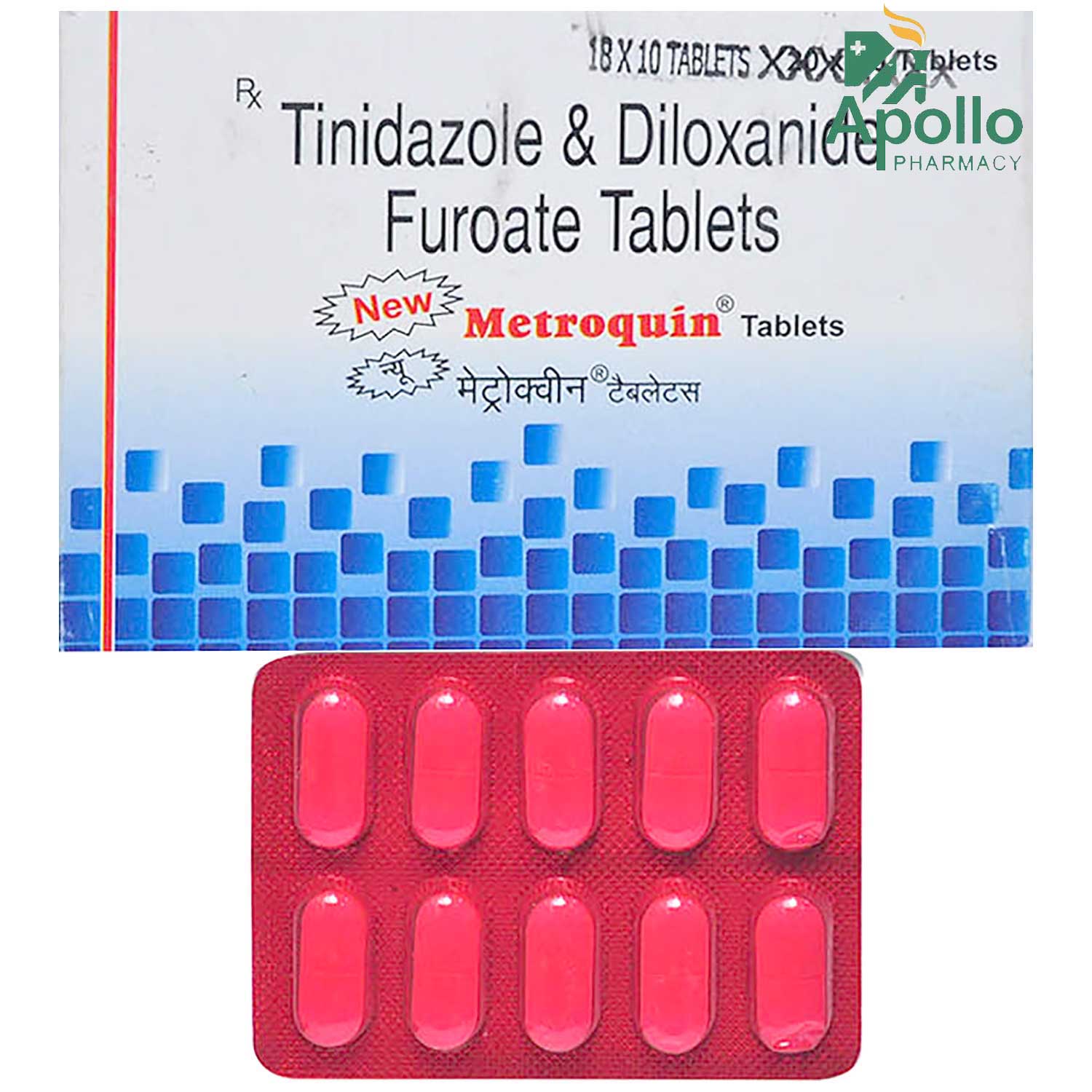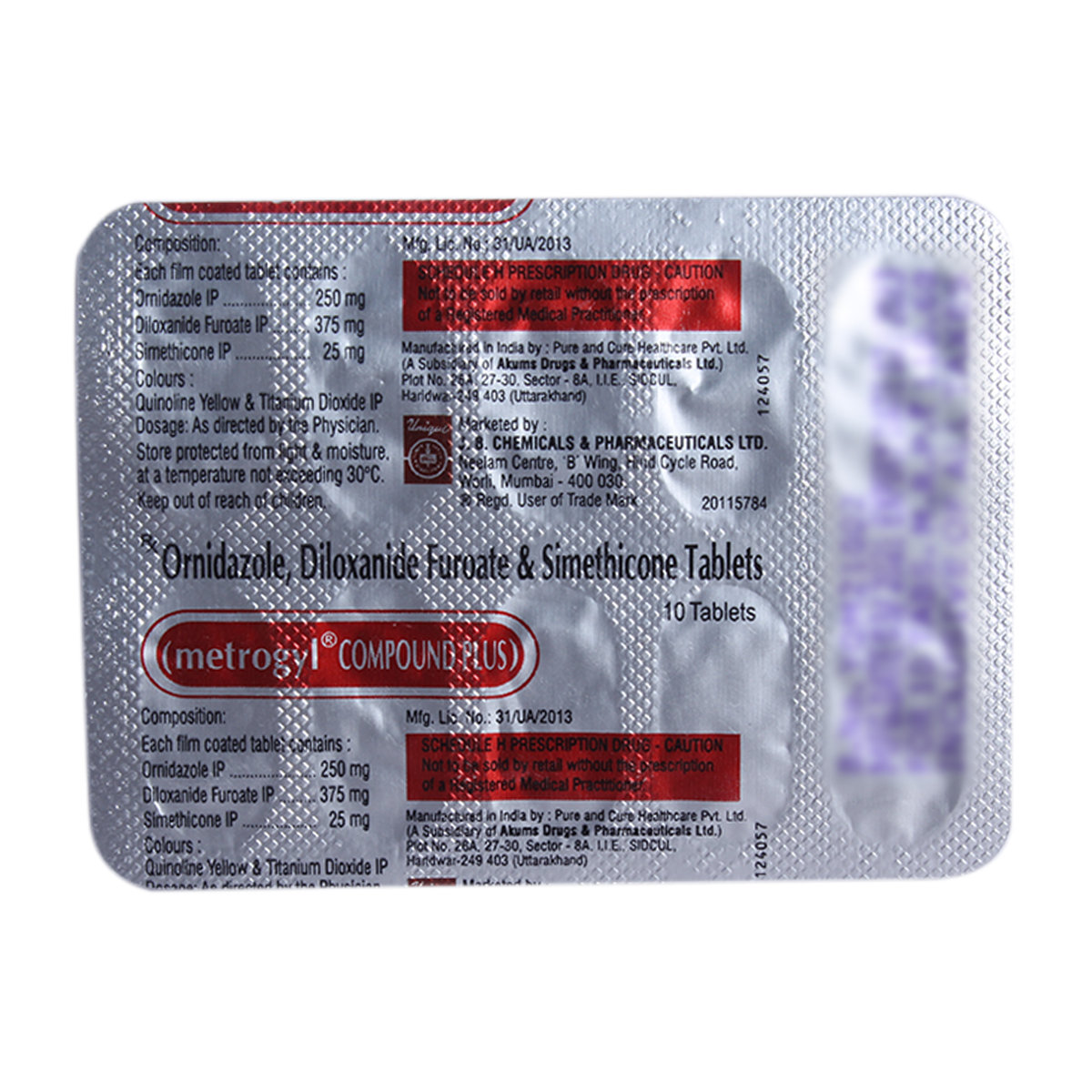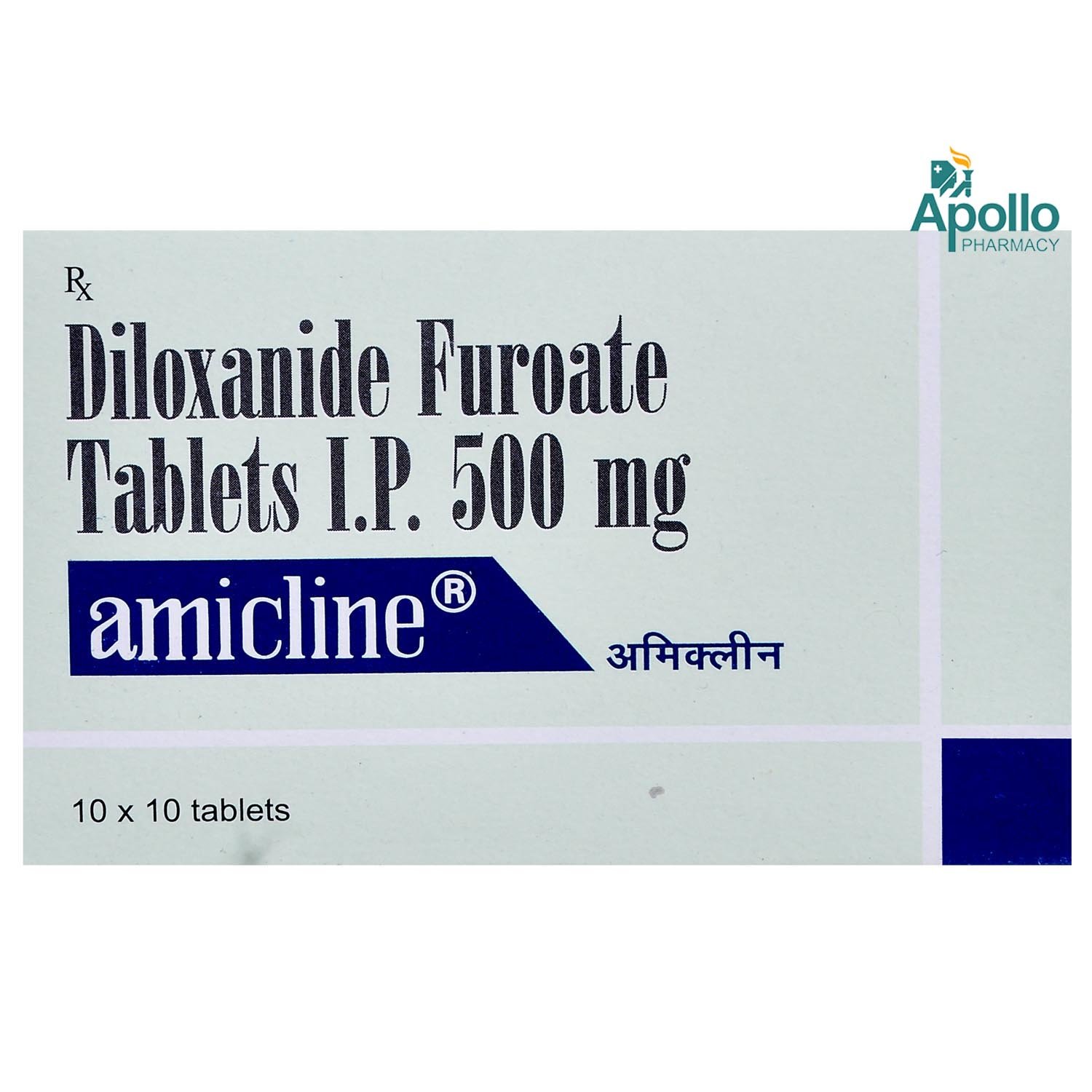Diloxanide
About Diloxanide
Diloxanide belongs to the class of 'antiprotozoal’ primarily used to treat worm infections like an intestinal worm and intestinal amebiasis (amoebic dysentery). One of the most important causes of stomachache in children is an intestinal infection which is mostly affected by intestinal parasites like worms. Worms have a tendency to live in the intestine and eat the nutrition. On the other hand, amebiasis or amoebic dysentery is an intestinal disease caused by the protozoal organism known as ‘Entamoeba histolytica’.
Diloxanide contains ‘diloxanide’ that acts against intestinal (lumen) amoeba that forms cysts. The intestine poorly absorbs Diloxanide and so remains in the intestine at a very high concentration. It interferes with the enzymes required for the formation of the cell wall and amoeba's survival in the intestine. thereby destroying its outer cell wall (cyst) layer and killing amoeba.
Take Diloxanide as prescribed by your doctor. You are advised to take Diloxanide for as long as your doctor has prescribed it for you based on your medical condition. You may experience nausea, vomiting, headache, hair loss, abdominal pain, abnormal liver function tests, dizziness, and fever. Most of these side effects of Diloxanide do not require medical attention and gradually resolve over time. However, if the side effects persist or worsen, please consult your doctor.
Do not take Diloxanide if you are allergic to ‘diloxanide’, or any other ingredients present in it. Inform your doctor if you have liver or kidney problems. Tell your doctor if you are pregnant or breastfeeding. Inform your doctor if you are taking any prescription or non-prescription medicines, herbal products or dietary supplements. This Diloxanide is not recommended for children below 2 years of age. Diloxanide should be used with caution in elderly patients as it causes adverse effects.
Uses of Diloxanide
Medicinal Benefits
Diloxanide contains the antiprotozoal and amebicidal compound 'diloxanide.' Diloxanide is a worm infection treatment that is used to treat intestinal worms and intestinal amaebiasis (amoebic dysentery). It inhibits the growth of amoeba, which lives in our intestines and causes diarrhoea. Diloxanide is effective against amoeba that forms cysts in the intestine (lumen). Because the intestine absorbs Diloxanide poorly, it accumulates in the intestine at a high concentration. It inhibits the enzymes required for cell wall formation and amoeba survival in the intestine, destroying its outer cell wall (cyst) layer and killing the amoeba.
Directions for Use
- Take Diloxanide with or without food, or as advised by your doctor.
- Follow your doctor's recommendations on the dosage and timing of this medication to achieve optimal results.
- Swallow it as a whole with a glass of water.
- Do not crush, chew, or break it.
Storage
Side Effects of Diloxanide
- Nausea
- Flatulence
- Vomiting
- Diarrhea
- Headache
- Hair loss
- Abdominal pain
- Loss of appetite
- Abnormal liver function tests
- Dizziness
- Fever
Medicines Containing this Salt
View AllDrug Warnings
Your doctor may check your liver function and blood counts before you start taking this Diloxanide and frequently during your treatment. Prevent being near people who are ill or have infections. Tell your doctor if you develop signs of infection. Do not skip doses and finish the recommended course, even if you start to feel better. Stopping it soon may enhance your risk of further infection. Do not take Diloxanide if you are allergic to ‘diloxanide’, or any other ingredients present in it. Inform your doctor if you have liver or kidney problems. Tell your doctor if you are pregnant or breastfeeding. Inform your doctor if you are taking any prescription or non-prescription medicines, herbal products, or dietary supplements. Diloxanide is not recommended for children below 2 years of age. Diloxanide should be used with caution in elderly patients as it causes adverse effects.
Drug Interactions
Drug-Drug interactions: No interactions found.
Drug-Food interactions: Alcohol consumption may increase the risk of side effects.
Drug-Disease interactions: Diloxanide should be used with caution in allergic patients.
Drug-Drug Interactions Checker List:
Safety Advice

Alcohol
cautionAlcohol consumption may worsen the side effects of Diloxanide like dizziness. It is better to avoid alcohol while you are being treated with Diloxanide.

Pregnancy
cautionDiloxanide is given to pregnant women only if the doctor thinks benefits outweigh risks. Please consult a doctor if you are pregnant or planning for pregnancy.

Breast Feeding
cautionIt is not safe to breastfeed while taking Diloxanide. It is advised to take this drug only if the doctor thinks the benefits outweigh the risks.

Driving
cautionDo not drive or operate machinery if you experience any dizziness while using Diloxanide.

Liver
cautionDiloxanide should be used with caution in patients with liver disease. Dose adjustments may be necessary.

Kidney
cautionDiloxanide should be used with caution in patients with kidney disease. Dose adjustments may be necessary.

Children
cautionDiloxanide is not recommended for children less than two years of age.
Habit Forming
Diet & Lifestyle Advise
- If you have diarrhea, try to drink appropriate amounts of fluids to avoid dehydration.
- If you have minor diarrhea, (less than four stools daily) drinking caffeine-free soft drinks, juices or sport rehydration drinks can be sufficient.
- If the diarrhea is more severe, specially formulated rehydration drinks should be taken.
Special Advise
- If you have major diarrhea, it is advisable to drink appropriate amounts of fluids or water to avoid dehydration. If you have minor diarrhea (i.e. less than 4 stools daily) try to include caffeine-free soft drinks, juices, or sport rehydration drinks. If the diarrhea is more severe, specially formulated rehydration drinks should be taken.
- Do not take plenty of fluid if you are a kidney patient.
- Frequently clean the toilets that you use with disinfectant. Keep a cloth just for washing the toilet (or use a non-reusable one each time). Remember to wash the flush handle, bathroom taps, toilet seat and door handles at least once a day with hot water and soap.
Patients Concern
Disease/Condition Glossary
Worm infection: One of the most important causes of stomachache in children is an intestinal infection which is mostly affected by intestinal parasites like worms. Worms have a tendency to live in the intestine and eat the nutrition. There are various types of intestinal worms that can produce worm infections, but the most common are roundworms, tapeworms, pinworms, hookworms and threadworms. Worm infections are common in children and are also easily cured.
Amoebic dysentery: It is an intestinal (bowel) illness caused by a parasite (amoeba) known as Entamoeba histolytica spread through human faeces (poop). Usually, there are no symptoms, but sometimes it causes diarrhoea (loose stool/poop), nausea (a feeling of sickness in the stomach) and weight loss.
FAQs
Diloxanide is used to treat intestinal worm infections and intestinal amebiasis (amoebic dysentery).
If you miss a dose, take it as soon as you remember. However, if it is time for the next scheduled dose, skip the missed dose and follow your usual dosage.
Diloxanide is effective if used in the dose and duration advised by your doctor. Do not stop taking it even if you see improvement in your condition. If you stop using Diloxanide too early, the symptoms may return or worsen.
This Diloxanide might be taken with or without food. But with food may avoid stomach upset and gastric irritation.
The most common side effects related with Diloxanide include vomiting, headache, hair loss, abdominal pain, abnormal liver function tests, dizziness and fever. However, these effects are not seen in all patients. If you are concerned about them or they do not go away, inform your doctor immediately.
Diloxanide works by inhibiting the growth of Entamoeba histolytica, the parasite that is responsible for amoebic infections. It disrupts the ability of amoeba to metabolize glucose, leading to the death of the parasite and helps to clear the infection from the intestines and tissues.
No, Diloxanide is not an antibiotic. It belongs to the group of medications called antiprotozoal agents. It is used for the treatment of worm infections like intestinal amebiasis (amoebic dysentery) and intestinal worms caused by the parasite Entamoeba histolytica.
Diloxanide is an antiprotozoal agent used to treat worm infections.

